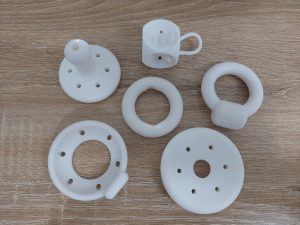If you’re experiencing symptoms of pelvic organ prolapse, such as a feeling of heaviness, bulging, or pressure in the vagina, you’re not alone, and you’re certainly not without options. Physiotherapy can play a central role in reducing symptoms, supporting pelvic floor function, and helping you feel more confident and comfortable.
At Secret Women’s Business Physiotherapy, prolapse care is never a one-size-fits-all approach. Our physiotherapists take the time to understand your unique experience because no two women’s bodies, births, or lifestyles are the same.
First Things First: What Is Prolapse?
Pelvic organ prolapse occurs when one or more of the pelvic organs (bladder, uterus, or bowel) shift downwards into the vaginal space. This can be due to a combination of factors including pregnancy, childbirth, ageing, menopause, chronic straining, or heavy lifting. It’s not just about the pelvic floor muscles, it’s also about how we move, lift, cough, empty our bowels, work and go about our day-to-day lives.
What Happens in a Physiotherapy Session?
Your first appointment with an SWB physiotherapist typically runs for an hour and includes a thorough discussion about your symptoms, lifestyle, and physical demands. We want to understand how prolapse is impacting your life, along with assessing bladder and bowel habits, your work and exercise routines.
A pelvic assessment may be part of the consultation (only with your consent of course.) We’ll evaluate the type and grade of any prolapse along with how the pelvic floor muscles are functioning. We assess your pelvic floor muscles to see… can they contract effectively? How well can you coordinate that with a cough or movement? Do they relax fully? Is there tension or weakness on one or both sides? This helps inform our treatment options moving forward.
Unloading the Pelvic Organs: The Hidden Levers
While pelvic floor exercises (sometimes called kegels) are important, they’re only part of the puzzle. Prolapse is often made worse by excessive intra-abdominal (downward) pressure, especially from straining, chronic coughing, and heavy lifting. A key part of physiotherapy is figuring out where that pressure is coming from and how to manage it better.
Some of the important strategies we use include:
- Optimising Bowel Health: Constipation and straining can significantly increase pressure on the pelvic organs. We work with you to establish regular, comfortable bowel habits, tailoring fibre, fluid, and toileting strategies, not just saying “drink more water and eat more fibre.” We understand that everyone’s bowels are different and we take the time to work with your specific situation and work out the best strategies moving forward.
- Pelvic Floor and Coordination: The pelvic floor doesn’t work in isolation. We explore how your breath, diaphragm, abdominals, and pelvic floor coordinate. Holding your breath to lift, bracing too strongly through the abdominals, or bearing down without realising it are common patterns that we help to retrain.
- Lifting and Movement Techniques: Whether you’re lifting a toddler, a washing basket, or a bag of groceries, how you lift matters. We’ll guide you through safe lifting mechanics that protect your pelvic organs and reduce strain.
- Coughing and Sneezing: For women with chronic cough or hay fever, we explore pelvic floor coordination during these events, or how we may better medically investigate or manage them.
When Might a Pessary Help?
A vaginal pessary is a small silicone device worn inside the vagina to help support the pelvic organs. While it’s not usually fitted at the initial consultation, it may be discussed if symptoms are more advanced or bothersome. Some women may benefit from vaginal oestrogen or improvement in tissue quality before a fitting. Your physiotherapist will guide you through this process when the time is right, and we offer fittings in a wide range of pessary shapes and sizes.
Supporting Your Goals
Whether your goal is to feel more comfortable at work, return to exercise, reduce the feeling of heaviness, or prepare for pessary use or surgery, we tailor a plan that works for you. Follow-up sessions allow us to monitor your progress, build pelvic floor strength and coordination, and adjust your plan as you progress.
Want to learn more about how physiotherapy can support you with prolapse?
Get in touch with our team at Secret Women’s Business Physiotherapy.
📍 Menai, NSW
📞 9543 8090
🌐 swbphysio.com.au







